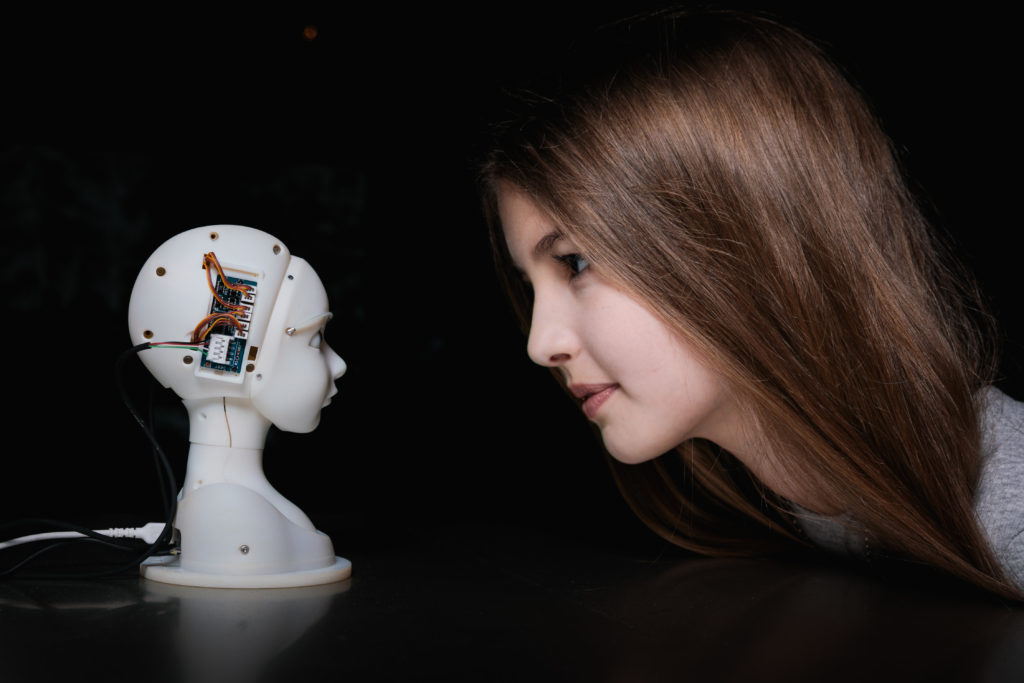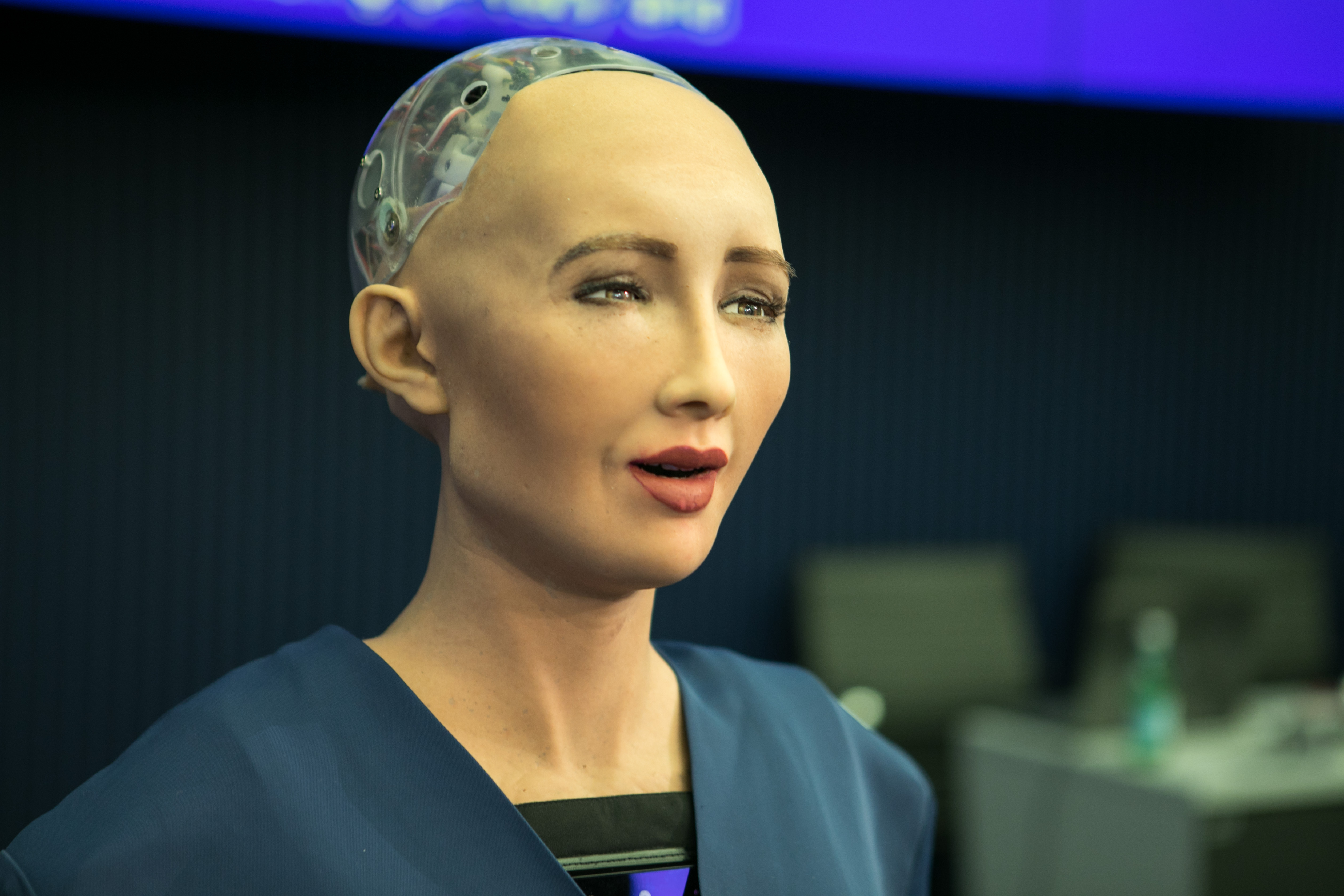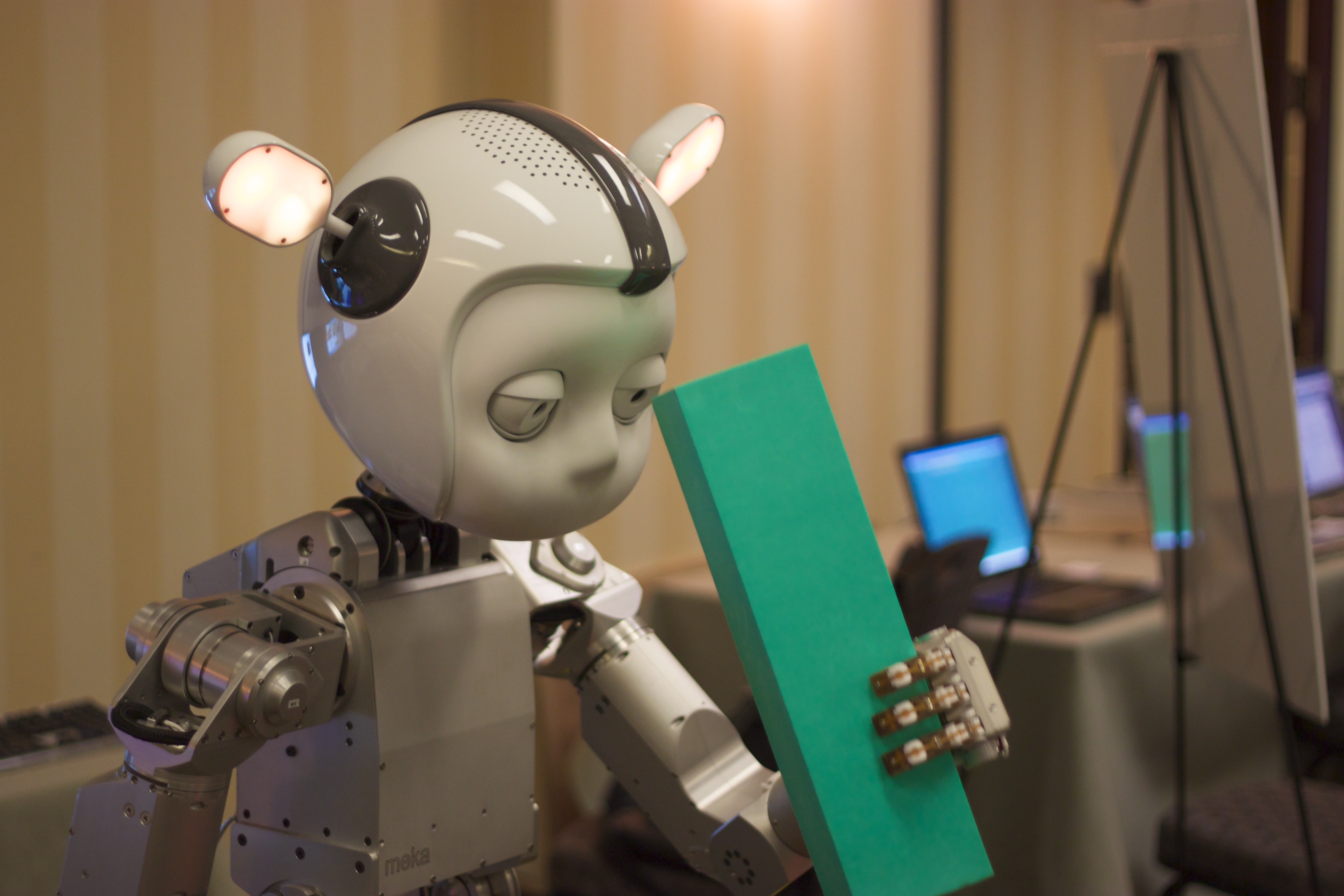Post
Humans and robots: how could they live together?

Ars ElectronicaSegui
SEER: Simulative Emotional Expression Robot / Takayuki Todo (JP)
For centuries the characteristics of both humans and animals have been analyzed thoroughly; giving rise to a wide debate on what common points and/or differences characterize the variety in traits and natures of different species. Today on an ever-approaching horizon of possibilities and evolution there is the groundwork to spark an even wider discussion:
What will be the differences between humans and humanoid robots? Or even better, will there still be differences between a person and a robot?
For humanoid robots – as the wording itself suggests – we mean an artificial intelligence that has human features. The arduous and challenging task that humanoid robotics face is that of replicating the cognitive and physical activities of human beings as faithfully as possible, even to the point of improving them.
These machines are created by humans with the ultimate goal of of replicate our own image and likeness.
For these reasons it’s natural to wonder whether in the future there will concrete enough differences for us to be able to distinguish between artificial intelligence and people.
Even today we have great examples of humanoids who are receiving more and more equal treatments like free human citizens.
One of the most remarkable cases is that of Sophia: Sophia is a humanoid robot with female features (created following the facial features of Audrey Hepburn) activated in 2015, she manages to talk to people and have her own sense of humor, she can reproduce 62 facial expressions and last but not least she is able to express emotions.
A big discussion has opened up around her figure when in October 2017 she obtained a citizenship from Saudi Arabia thus becoming the first robot in history to be a citizen of a nation.

Flickr: ITU Pictures | AI for GOOD Global Summit
Il robot Sophia (Hanson Robotics Ltd) interviene all’AI for GOOD Global Summit di Ginevra in Svizzera, 7 – 9 giugno, 2017
Can an artificial intelligence be considered at the same level as a human being? The moment when Saudi Arabia gave Sophia it’s citizenship, theoretically speaking with it come the same rights and duties as a person in the flesh.
Can artificial intelligences like Sophia vote, buy a property and even travel with a regular passport?
Obviously, the opinions that were expressed as a result of cases like this are contrasting; all over the world, people began to wonder whether it’s ethically correct that the same freedom that today is granted to humans, tomorrow will also be granted to artificial intelligences.
A theme that has been made present is that of the impact of humanoid robots in the working environment.
An example? In Japan for a period of time a minami (a robot that isn’t completely autonomous) became a shop assistant with the task of convincing its customers to buy very expensive high-end cashmere sweaters. The result is surprising: in a comparison with 25 other human shop assistants who worked on the same floor, our artificial assistant came in the sixth position in the sales raking.

Flickr: Jiuguang Wang
Humanoid robot Simon playing with blocks at AAAI 2010
Very interesting are the points of view of the people who work and create artificial intelligences, personalities like Kohei Ogawa.
The Japanese Khoei Ogawa is not only a researcher, but also a professor of robotics and artificial intelligence, who claims without fear that “we shouldn’t be afraid of robots”. He was one of the members of the team that created and developed Erica: humanoid with female features that is able to interact completely independently and replicate many facial expressions. This combination earned Erica the position of presenter on a newscast.
The issue is increasingly complex but at the same time it’s fascinating and certainly deserves further discussion.
On November 7th Kohei Ogawa will be present at Museo Nazionale della Scienza e della Tecnologia Leonardo da Vinci – via San Vittore 21, Milan where these topics will be discussed.
Register here.
